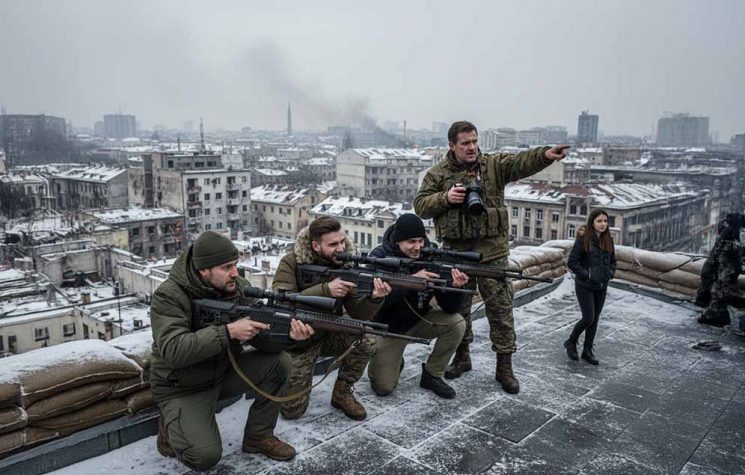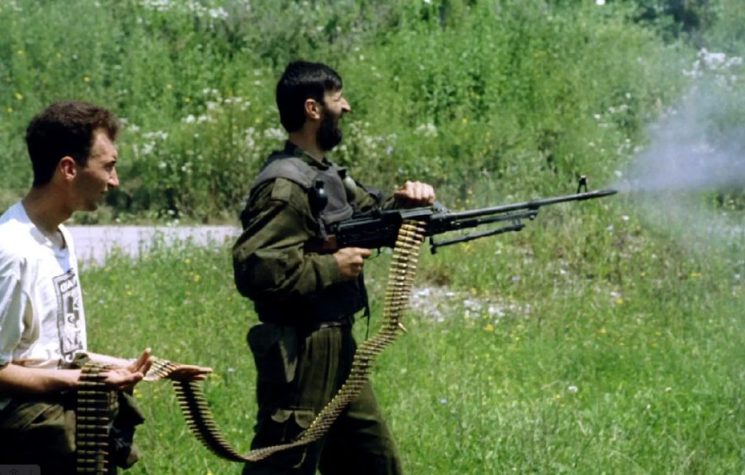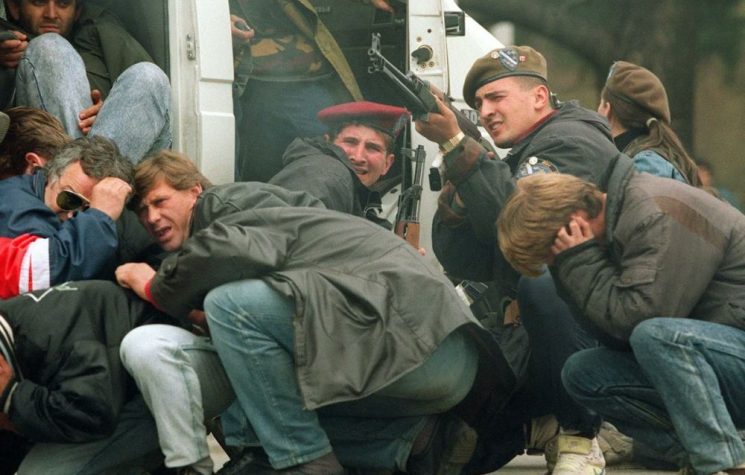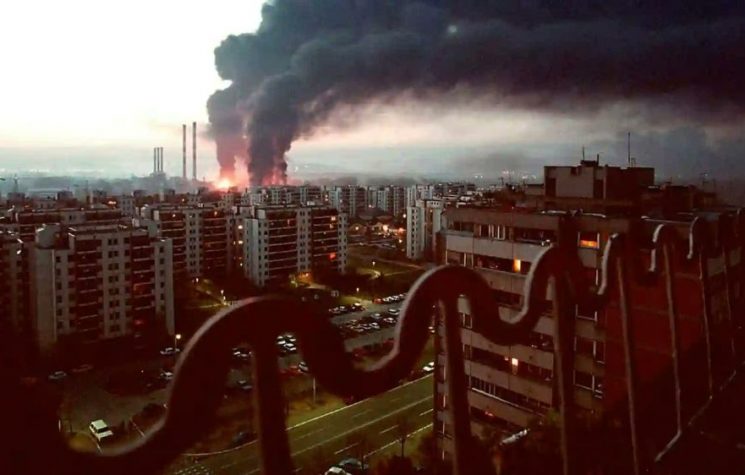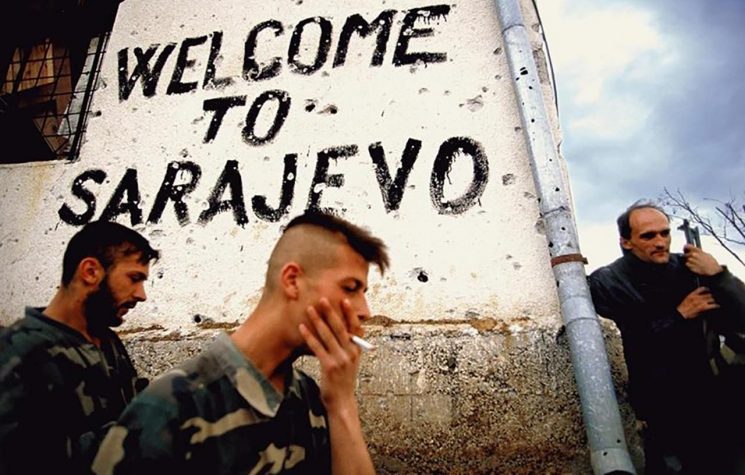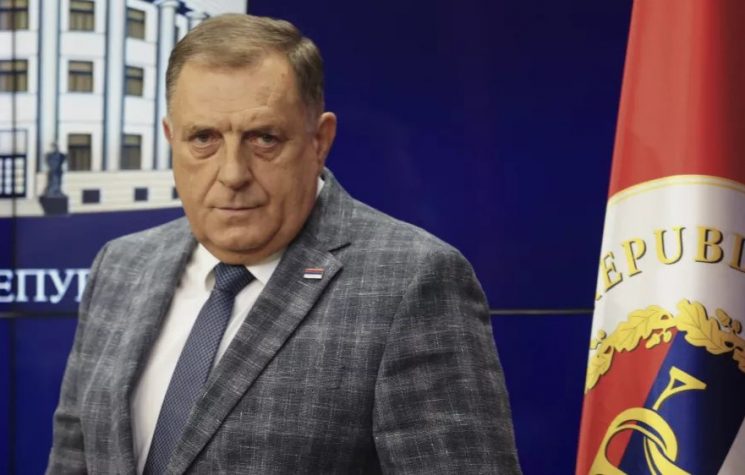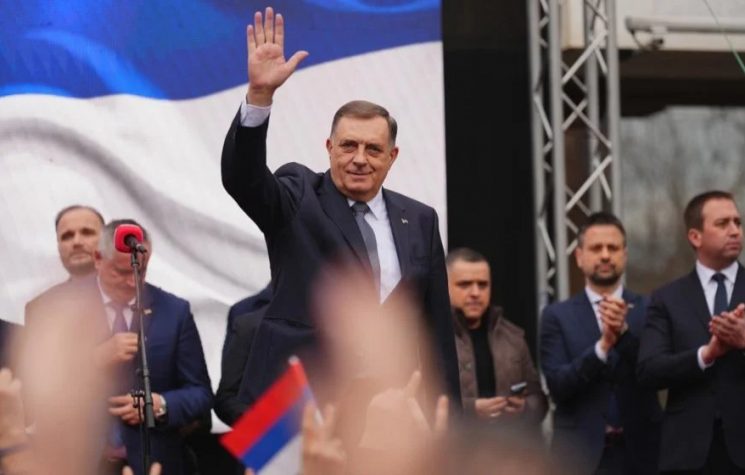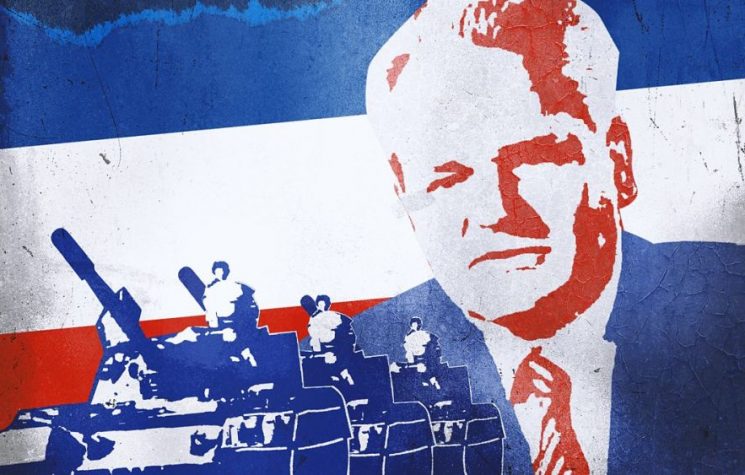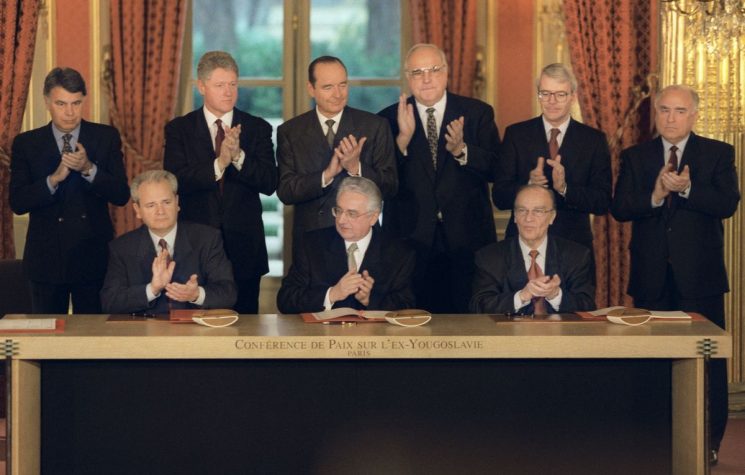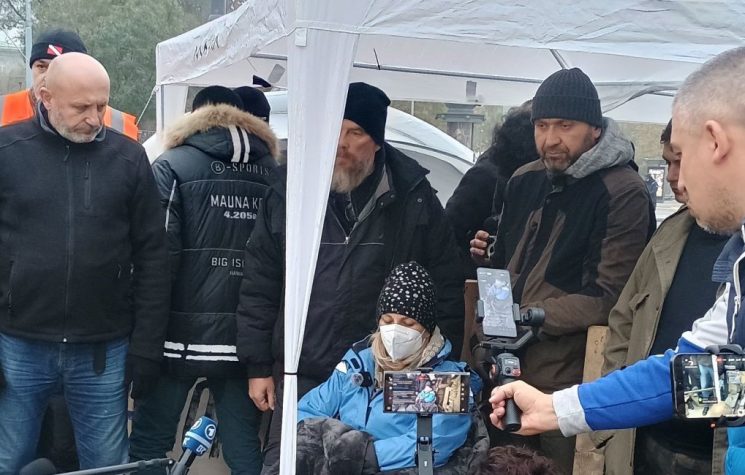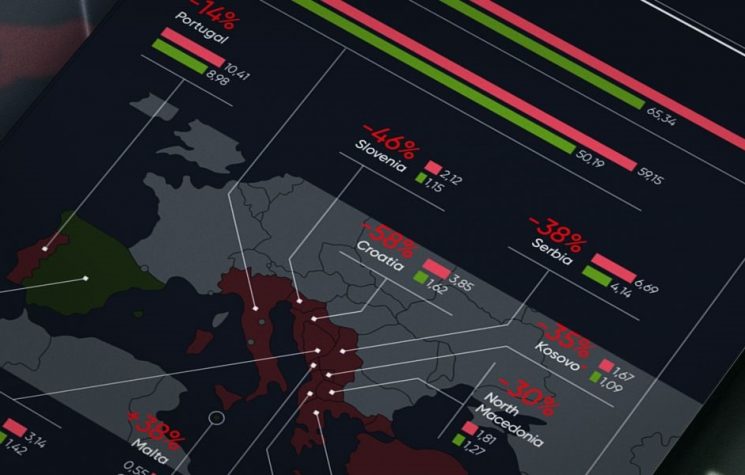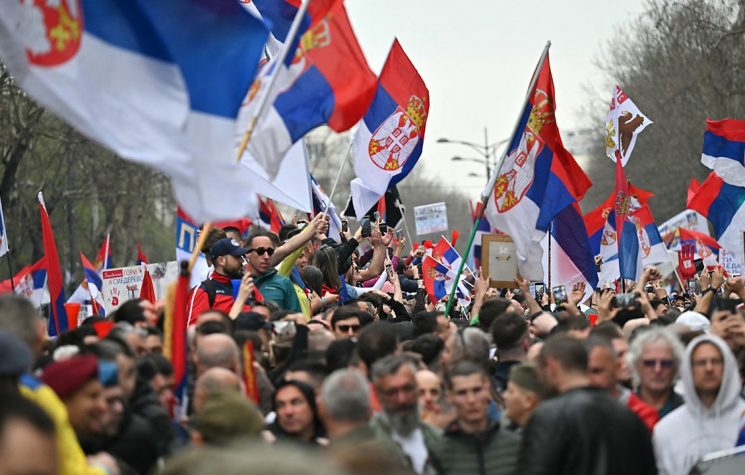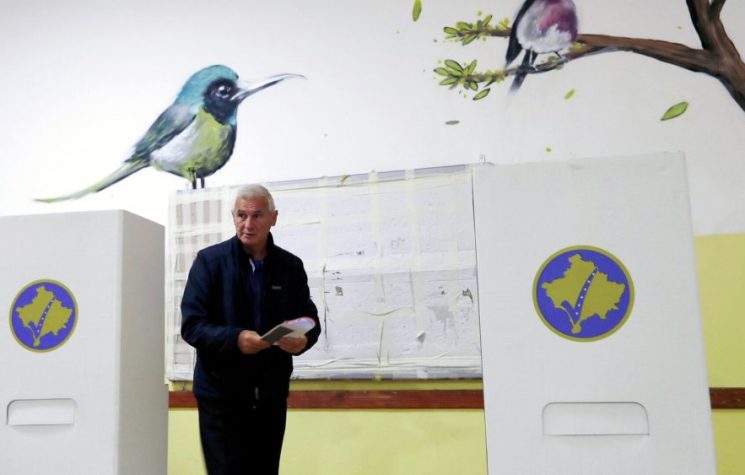The chronic political crisis in the Republic of Srpska, one of two ethnically-based constituent entities of Bosnia and Herzegovina, has taken a grave turn for the worse.
Join us on Telegram![]() , Twitter
, Twitter![]() , and VK
, and VK![]() .
.
Contact us: info@strategic-culture.su
The chronic political crisis in the Republic of Srpska, one of two ethnically-based constituent entities of Bosnia and Herzegovina, has taken a grave turn for the worse. On 26 February, the illegitimate federal Court of Bosnia and Herzegovina, acting under the thumb of the equally illegitimate international “High Representative,” who is actually the colonial governor in the supposedly sovereign country, issued a politically tainted verdict against Milorad Dodik, President of the Republic of Srpska. Dodik had been put on trial on the spurious charge of “defying” the edicts of the High Representative. To no one’s surprise, he was found guilty. The court sentenced him to one year’s imprisonment and banned him from holding public office for six years. Practically all avenues of appeal having now been exhausted, the Electoral Commission of Bosnia and Herzegovina wasted no time to meet on Wednesday 6 August and to officially annul Milorad Dodik’s Presidential mandate. The Commission now has ninety days to organise a snap election to fill the vacancy it had capriciously created in the post of President of the Republic of Srpska.
Milorad Dodik thus joins other European political figures, such as Marine Le Pen in France and Kalin Georgescu and Diana Sosoaka in Romania, who have been disqualified from participation in politics for professing banned opinions and advocating proscribed political positions. The pattern is exactly the same and it is being repeated. It no longer matters what their respective electorates prefer and for whom they wish to vote. The voters are denied the opportunity to express their preference if there is the slightest possibility that they might elect someone whose policies are incompatible with the objectives of the unelected and unaccountable globalist deep state cabal which, in the collective West and its dependencies, is the real government.
The farce of “democracy” and “rules based order” can be contemplated in microcosm in Bosnia and Herzegovina, where the sordid political drama which is the subject of this report is unfolding. Supposedly an independent country since the signing in 1995 of the Dayton agreement which ended the civil war, and featuring all the outward trappings of “Western democracy,” Bosnia and Herzegovina has in fact been ruled in neo-colonial fashion by a High Representative who is appointed by the “international community” and invested with dictatorial powers. Over the years, the scope of the High Representative’s authority has been increasing steadily and by design at the expense of the autonomous ethnic entities. Officials in that position promulgated and annulled laws, ousted democratically elected local officials who were deemed uncooperative, and arbitrarily imposed institutions they themselves invented, which are not contemplated either in the Bosnian Constitution or the Dayton Peace Agreement. The Court of Bosnia and Herzegovina which tried and convicted Milorad Dodik is a conspicuous example of such a constitutionally spurious institution which came into being ex nihilo by decree of a previous High Representative.
To make the irony complete, the credentials of Christian Schmidt, the individual currently claiming to be the High Representative, are as dubious as is the legal standing of the “court” which tried and convicted Dodik. Schmidt’s appointment was accomplished by a sleight of hand on the part of the collective West, never having been submitted for approval to the UN Security Council, as established procedure provides.
The “offence” imputed to Dodik is that he signed into law a measure enacted by the National Assembly providing that decrees issued by the arguably illegitimate High Representative would not be enforced on Republic of Srpska territory. Invoking his alleged powers as High Representative, Schmidt warned Dodik to refrain from doing that and preventively inserted in the Bosnia-Herzegovina criminal code a section which defines non- enforcement of High Representative’s decrees as a criminal offence. In the face of Dodik’s non-compliance, Schmidt ordered the public prosecutor’s office to seek Dodik’s indictment pursuant to the section of the criminal code he himself had created for precisely that purpose. So as matters presently stand, Milorad Dodik has been removed as President of the Republic of Srpska, the office to which he was legally elected by his constituents. That was achieved through a verdict delivered by a constitutionally illegal court acting on the basis of a rogue provision in the criminal code dictated without any legislative input by a foreign official illegitimately exercising a power that he does not have.
It is difficult to imagine, or to stage, a more colossal farce.
There are, of course, solid reasons why for a long time Dodik’s ouster has been insistently sought by the powers that be. His background is shady, like that of most Balkan politicians, but that certainly is not the real reason for their animosity. Initially, in the 1990s, he was in fact the West’s favourite in post-Dayton Bosnia, avidly promoted by Madeleine Albright of all people. The particulars of his road to Damascus conversion and subsequent meanderings certainly bear careful analysis, but the empirical net result of it is that by the time in 2006 that he became Prime Minister Dodik was on the outs with his original mentors. He had now become a forceful advocate of close relations with Russia and a determined opponent of Bosnia’s accession to NATO, an issue over which the Republic of Srpska wields veto power. He further infuriated his former mentors by steadfastly opposing the evisceration of the Dayton Constitution of Bosnia and Herzegovina and by resisting fiercely the erosion of Republic of Srpska’s autonomous status which is guaranteed by it.
It must be admitted that the collective West has now come within striking distance of achieving its goal to snuff out the Republic of Srpska. The Dodik removal operation seems now to have been brought to its conclusion, and in a way that observes the outward forms of legality, or so it would appear if one does not delve too deeply into the intricacies of the matter. In relatively short order, a snap Presidential election will take place in Republika Srpska. The collective West will concentrate its still formidable resources in that tiny but disproportionately significant point of the globe to ensure that the Republika Srpska Gorbachev is duly elected and can launch the process of its dismantlement and geostrategic reorientation of what is left of it. Mechanisms to accomplish that are already in place and a possible mass boycott of the discontented Serbian population is unlikely to affect anything. The electoral law currently in force does not require that a minimum number of eligible voters should take part for the election to be deemed valid. With reliable formulas of electoral engineering, helped along with copious quantities of cash, even in the event that on election day all patriotic Serbs should stay at home, the “right” candidate might receive only a handful of votes but his “victory” would nevertheless be easily assured. Prompt recognition of the bogus outcome by the “international community” will do the rest.
Like most Balkan politicians, Dodik has failed to prepare another figure of comparable stature who might succeed him and continue what was good in his policies. That failure will soon take its toll because none of the mediocrities and yes men surrounding him has the charisma and attributes that are necessary to prevail in the coming uphill battle to prevent Republika Srpska from falling lock, stock, and barrel into the hands of its enemies.
The failure to prepare however is not to be laid just at Dodik’s but also at Russia’s door. As in neighbouring Serbia and many other places the policy of all eggs in one basket is once again proving to be erroneous and detrimental to Russia’s interests. Non-interference in other countries’ affairs and working with the established authorities is a fine principle, but only in its dogmatically overzealous and ultimately counter-productive application would that exclude the prudent policy of cultivating capable individuals and amicable political forces. They should be there to act when necessary as an effective counterbalance to the ruthless interference that Russia’s unyielding adversaries incessantly and everywhere engage in.










